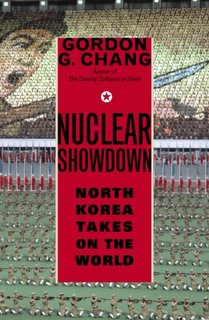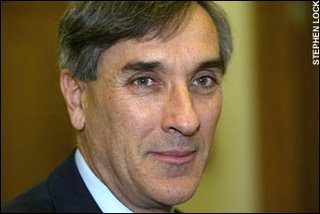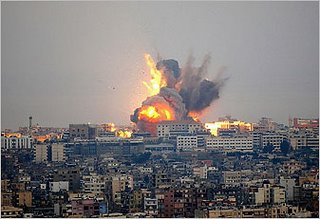

Alright, I have to respect confidentiality. This morning I had a brush with history and met a grandson of a grandson of
Lin Tse-hsu (or Lin Zexu, 1785-1850), the anti-opium commissioner in Canton (or Guangzhou) in 1839 who ordered the surrender of imports of opium from British merchants, their detainment when they refused, and finally, the burning of the opium. Its burning was not the cause of the
First Opium War; it was the prelude. Even so, most Chinese people thirty years or older will recognize Lin Tse-hsu because Chinese folklore and history memorialized Lin as anti-Western-imperialist and firmly against use of the narcotic drug. I was born in Hong Kong, one of many ports awarded to the British in the 1841 Treaty of Nanking (or Nanjing), and I read a Chinese history book last January. So, I found all this link to the past fascinating. After the Chinese Revolution of 1911, this guy's grandfather became refugee because of Kuomintang persecution of aristocratic families, moving to Hong Kong, then Venezuela, while his great-uncle ended up in Cuba. If you know art, this guy's uncle is Wilfredo Lam (1902-1982), whom the
Guggenheim described to have created his style by "
fusing Surrealism and Cubism with the spirit and forms of the Carribean." Wilfredo Lam's most famous piece is
La Jungla (or The Jungle, 1943). Another uncle is a successful businessman in Venezuela. As an immigrant myself, I found it gratifying to see the success of Chinese refugees and immigrants.

 Alright, I have to respect confidentiality. This morning I had a brush with history and met a grandson of a grandson of Lin Tse-hsu (or Lin Zexu, 1785-1850), the anti-opium commissioner in Canton (or Guangzhou) in 1839 who ordered the surrender of imports of opium from British merchants, their detainment when they refused, and finally, the burning of the opium. Its burning was not the cause of the First Opium War; it was the prelude. Even so, most Chinese people thirty years or older will recognize Lin Tse-hsu because Chinese folklore and history memorialized Lin as anti-Western-imperialist and firmly against use of the narcotic drug. I was born in Hong Kong, one of many ports awarded to the British in the 1841 Treaty of Nanking (or Nanjing), and I read a Chinese history book last January. So, I found all this link to the past fascinating. After the Chinese Revolution of 1911, this guy's grandfather became refugee because of Kuomintang persecution of aristocratic families, moving to Hong Kong, then Venezuela, while his great-uncle ended up in Cuba. If you know art, this guy's uncle is Wilfredo Lam (1902-1982), whom the Guggenheim described to have created his style by "fusing Surrealism and Cubism with the spirit and forms of the Carribean." Wilfredo Lam's most famous piece is La Jungla (or The Jungle, 1943). Another uncle is a successful businessman in Venezuela. As an immigrant myself, I found it gratifying to see the success of Chinese refugees and immigrants.
Alright, I have to respect confidentiality. This morning I had a brush with history and met a grandson of a grandson of Lin Tse-hsu (or Lin Zexu, 1785-1850), the anti-opium commissioner in Canton (or Guangzhou) in 1839 who ordered the surrender of imports of opium from British merchants, their detainment when they refused, and finally, the burning of the opium. Its burning was not the cause of the First Opium War; it was the prelude. Even so, most Chinese people thirty years or older will recognize Lin Tse-hsu because Chinese folklore and history memorialized Lin as anti-Western-imperialist and firmly against use of the narcotic drug. I was born in Hong Kong, one of many ports awarded to the British in the 1841 Treaty of Nanking (or Nanjing), and I read a Chinese history book last January. So, I found all this link to the past fascinating. After the Chinese Revolution of 1911, this guy's grandfather became refugee because of Kuomintang persecution of aristocratic families, moving to Hong Kong, then Venezuela, while his great-uncle ended up in Cuba. If you know art, this guy's uncle is Wilfredo Lam (1902-1982), whom the Guggenheim described to have created his style by "fusing Surrealism and Cubism with the spirit and forms of the Carribean." Wilfredo Lam's most famous piece is La Jungla (or The Jungle, 1943). Another uncle is a successful businessman in Venezuela. As an immigrant myself, I found it gratifying to see the success of Chinese refugees and immigrants.




















